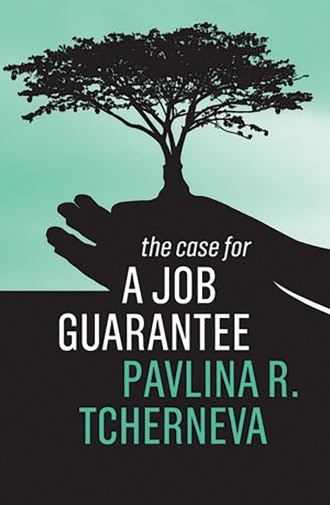This is the last article you can read this month
You can read more article this month
You can read more articles this month
Sorry your limit is up for this month
Reset on:
Please help support the Morning Star by subscribing here
AS MORE and more people are realising, trying to live without a well-paid job can cause profound problems for both individuals and society. Sadly, even when economies are not in lockdown and supposedly functioning normally, there are always significant amounts of people unable to find work.

Research consistently shows that joblessness exacerbates social exclusion, excessive inequality, economic destitution, increased crime levels and health issues, as well as encouraging the scourges of human trafficking, forced child labour, exploitation and modern slavery.
A lack of decent jobs can become a cancer that leads to the gradual ruin of communities. The economics of unemployment are clearly bad economics.
This concise book spells out the value and necessity of decent, living-wage work for everyone who wants it. Based almost exclusively on US research but of international significance, the job guarantee is now an affordable, fully-costed policy and fundamental pillar of the much publicised new green deal.
It’s not a new idea. Roosevelt created employment projects throughout the US during the Great Depression and a “right to work” was even affirmed in the Universal Declaration of Human Rights.
Closer to home, the little-heralded future jobs fund, introduced when Gordon Brown was prime minister, proved to be a very effective job-creation programme.
The job guarantee would not displace existing skilled workers. It aims to provide environmentally sustainable and rewarding public-service employment opportunities that help fortify infrastructures, improve the range of care provision available and address environmental challenges.
Working is usually preferable, and far more productive, than joining the dole queue. A job guarantee counters the theories that there is an optimal level of unemployment and that the dispossessed are unavoidable collateral damage in a “free” market economy.
Full employment and an economy-wide living wage would also provide an economic shock absorber to capitalism’s inevitable booms and busts.
With the average cost of imprisonment roughly equivalent to a living wage, the job guarantee represents a superior investment in human and natural resources. It also recognises workers as an essential resource that needs protection. Without it, the threat of the sack or outsourcing looms over everyone.
The job guarantee is not a panacea for all ills but it certainly ticks a lot of the right boxes. It destroys mass unemployment, secures the living wage and helps to inoculate us all against the huge societal costs of neoliberal economics. Bring it on.
The Case for a Job Guarantee is published by Polity Books, £9.99.









